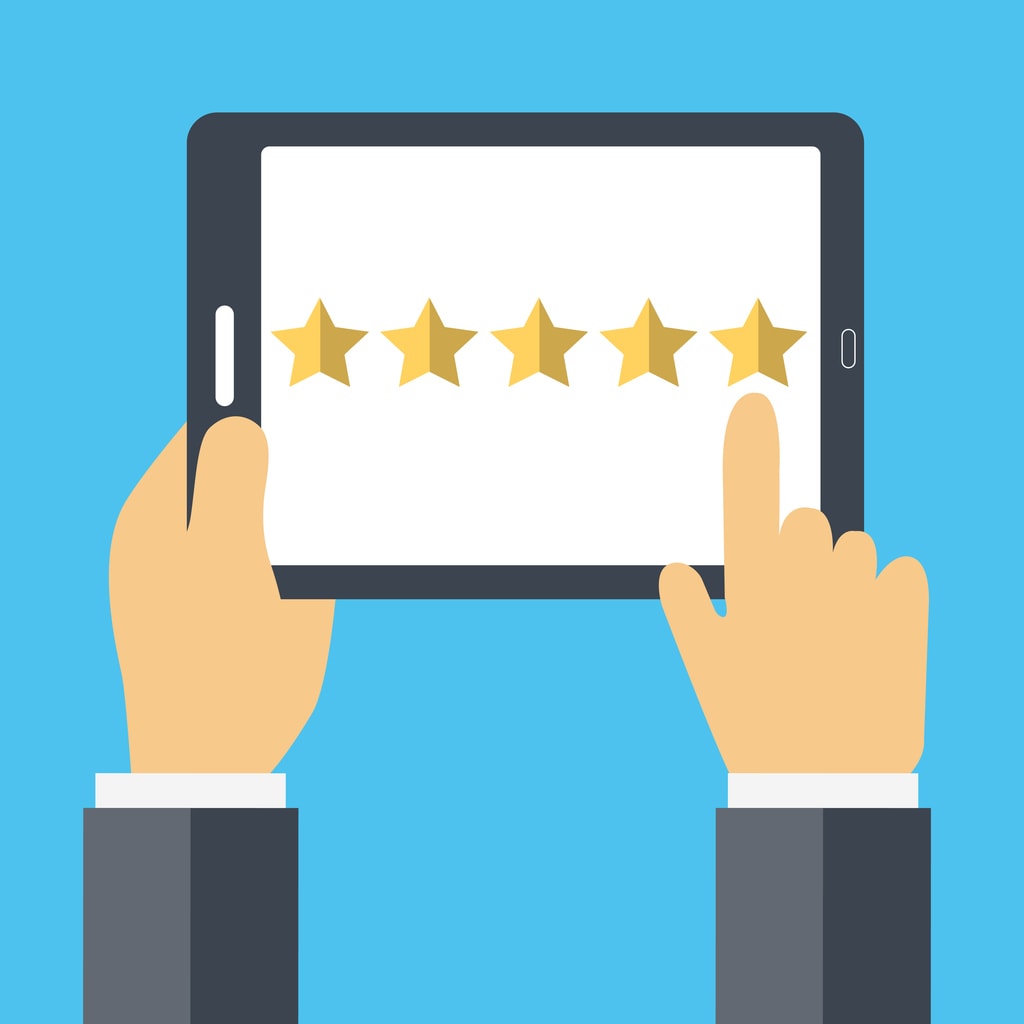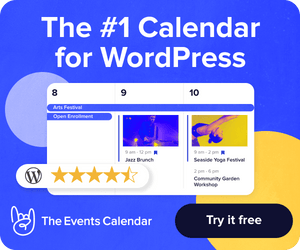How to Write a Compelling About Us Page for your Online Store
“Who are you?” The Who demanded in 1978.
The question Pete Townshend asked (and Roger Daltrey roared out) is also on the minds of everyone who spends more than 10 seconds on your website. And you’d better be able to answer them because they really want to know.
This is exactly why your website needs an About Us page, and it better not be an afterthought! Your visitors and potential customers want to size you up just as they would if they were walking into your shop, factory, office, dealership–wherever you sell products or provide services.
Your About Us Page is a Marketing Tool
The About Us page is a key, and more importantly, a marketing tool to convince new website visitors that they can do business for you.
The About You page isn’t going to be the first page on your site that most people will visit. A smart campaign with landing page might entice visits to your website site if the call to action (CTA) is effective. So will a strong presence on search engines due to the strong and authoritative content you’ve added to your site.
Once potential customers become intrigued by what they’ve viewed so far, it’s natural that they want to find out more about your business before investing any more time and effort with your site. Their next stop is almost certainly going to be the About Us (or About Me) page. This is one of the four most frequently visited website pages, says marketing guru Neil Patel. (The others are the home page, blog, and contact pages.)

The About Us page is a key marketing tool. Regardless of how site visitors arrive at this page, understand that these are people who haven’t bounced off your site and are staying there because they are already interested in your work. This page is where you tell them why you’re a good choice for them. Give them information they need to know that tells them they can relate to you because even though the page is called “about us,” its purpose is to demonstrate “what we can do for you.”
If you’re like us and you sell a service, your potential clients are looking for reassurance that (1) you’re reliable and (2) you deliver results. Here’s what they want to see:
- You have the skills they’re looking for.
- You understand their goals, points of view, and concerns.
- You’ll get the job done on time.
- You can be trusted with confidential information.
If you’re selling products, tell them how you stand behind what you sell and what makes them stand out. This is particularly important if you also design and/or manufacture the products you sell.
- Are they made in the USA, Free Trade, or eco-friendly?
- Do you research and try out products before you offer them for sale?
- If you create the products, what’s your process? How do you test them?
- If you have a brick and mortar store, stress why your shop is a better place to buy than, say, big-box stores. Maybe you provide expert guidance, are family-owned since whenever, or buy from local sources. (This can also apply to eCommerce stores as well.)
The best way to identify what makes you stand out from the competition is to talk to your present customers. Even if you think you know them pretty well, soliciting feedback can give you insights into why they continue to do business with you.
If you don’t see customers face to face or speak with them live, which is often the case with eCommerce sites, you can still have conversations. Read emails customers send you and the comments they leave on your website and social media. Jot down major points picked up from customer service calls.
If your business is a new one, talk about why you opened your doors (or cloud) to your target audience. What was in your background that inspired you to go on your own? Personally, I wanted to do a deep dive into WordPress and WooCommerce services, something I share with Liquid Web, so it made sense for me to stress this in Mode Effect’s early days.
Or if you’ve been around for a while, as Liquid Web has, your About Us page needs to stress to potential clients that you understand what they need and you can deliver. For example, Liquid Web shares that it’s a $100 million hosting company that is totally devoted to serving web and cloud professionals and helping them grow to their potential. They haven’t segued into unrelated areas but instead have expanded to meet their customers’ own expanding needs.
Does this reassure businesses whose sites need to be up-and-running 24/7, want them to be fast and responsive, and protected from hackers? You bet it does. Their About Us page stresses diverse skills the company’s staff brings to clients and the fact that it provides customer service all the time. Customers truly are “never alone.”
So go ahead and brag a bit, but be sure that your achievements fall within service areas that your target audience needs.
Don’t worry about turning off potential customers. As long as you keep the conversation about your target audience, you’ll hit the right buttons. And as Adam Kreitman writes in a Crazy Egg blog, prospects that aren’t a good fit will recognize this and move on. As much as it may hurt to “lose” a prospect, this saves both of you time and effort if it turns out your expertise isn’t quite what’s required.
About Us Page Content Should Be Targeted
Of course all content should be targeted to your customer base. The question is, how do you do that? And how long should it be?
A lot depends on your target audience’s sensibility. Are they customers shopping for fun products, or necessities like a refrigerator? Or are they looking for specific services they know a lot about, or nothing at all?
It may sound counterintuitive, but content on the About Us page should be short on websites with large, diverse audiences and sell consumer-oriented products and services. People who look at About Us pages on these sites are interested to get general information about the company, such as legitimacy, how long it’s been around, and sometimes where it’s located and where it sources its products and services. These four points may cover enough material:

- Mission statement
- Brief history
- Company values
- Success (number of customers served, company growth or value)
Ideally, this information should be located above the fold, where content is visible without scrolling.
Potential customers who are preparing to spend a lot of money on specific products or services will want to see more. This is where you want to introduce staff, expand a bit more on the company history, and offer testimonials. There’s more about these topics below.
Regardless of the content length, don’t write a dry About Us page. There’s no reason why business capabilities can’t be presented in engaging ways. Here are a couple of techniques that can make this page stand out:
- Present introductory content in a letter format. Remember letters, those paper communiqués that predated email? A letter or other welcome note from the CEO can be a charming way to connect with website visitors. I’m not saying the entire page should be a letter, but perhaps the introduction could, literally, be a graphic with a quick introduction.
- Create an infographic. Infographics are popular blog tools. Why not think of the About Us page as an introduction to a blog? If your company has a long but interesting history, a fun infographic is more likely to be absorbed than a timeline that might not get read.
Above all, make sure the content is conversational. You aren’t speaking to a business loan officer or the IRS.
Try not to use jargon at all unless you are targeting highly technical people who expect it. Otherwise, it just sounds pretentious, doesn’t it? These days, audiences are so mixed and you don’t always know who’s researching for the products or services you provide. It would be a shame to miss a potential customer because the person doing the research didn’t recognize what the heck you’re talking about!
I was also reminded that a lot of career sites advise job seekers to check out About Us pages for companies they’d like to work for or may be interviewing with. So if your business is going to grow, remember that an About Us page that seems friendly and genuine can help you land some new talented employees.
Mix Up the Media on Your About Us Page
If you’re doing business on the web, you have to be open and transparent.
Add photos to the About Us page. Put up photos of yourself and/or your staff. People like to see the faces behind the website. It’s also a useful way to get recognized if you attend industry conferences and meetings. Include graphics like your corporate logo (Liquid Web even has a short history about its logo) and group photos.
Use photos that match your work. If you’re in sales, or part of a professional group like a law firm or accountancy, formal headshots in business attire is fine. But it’s perfectly acceptable to wear more casual clothing and choose less formal settings elsewhere. If you sell consumer goods, it’s fine to pose with those goods or inside your store. If you deliver a service like website design, a photo of you in front of your monitor displaying your own website is a great idea.
Headshots work, too, but they can be a bit boring when everyone’s background and pose look the same. How about giving your subjects natural props to hold like their glasses or a coffee mug. Consider hiring a professional photographer, too–they can really help people relax and offer lots of different backdrop colors.
If you’re an eCommerce site, also include photos of a few of your best-selling products to underscore what your site delivers. Also include behind-the-scenes shots of employees on the job, which can really help personalize the page.
Record a video for the page. Consider doing more than posting photos. If you have a smartphone, you have the means to make a video, which will take you beyond the mere recognition factor of a photo and introduce you and your company’s personality.
This doesn’t have to be a slick production, just informative, and if possible, fun.
- Show off the new technology you’re using with a 45- or 60-second clip.
- Get someone to take a video of you unloading new merchandise and reaching for the Advil afterward.
- Did you recently move to a new location? Take your website visitors on a tour!
If you or someone on staff is a good speaker and performer, use these skills to make an introductory video. Write a script and make cue cards if necessary. Most people will need a few takes, even if it’s “just” a smartphone video so allow some time for this plus editing. It is worth the effort because people (and customers) respond really well to video.
Link to Biographical Pages Like LinkedIn. If your business is in the service area, provide links to your LinkedIn personal and business pages. Encourage your employees to claim their pages and give them time to populate them. Ask (and encourage) them to allow you to link their About Us photos or bios to their LinkedIn pages.
If your staff offers particular talents used in the business, such as art, consider offering links to their online portfolios. It tells visitors that you support your staff’s growth, and tells staff that you think highly of their work. In an era where many employees worry about being laid off without notice, it’s nice to demonstrate your support and regard.
Add Testimonials to the About Us Page

Lots of websites have testimonial pages (here is Liquid Web’s), which are a great idea, but I can’t help wondering if they belong on the About Us page.
My reasoning is this: the point of a website is to encourage people to click on that Contact Us link that should be on every, or at least most, website pages. The About Us page is front and center for encouraging a contact.
And what else really pushes people to make that contact? It’s being persuaded that your company is the answer to their search, or at least is a front-runner worthy of their time to get more information. Only personal recommendations from a trusted source weigh more than a public testimonial from a current or recent satisfied client. If you don’t have a page devoted to testimonials, use your About Us page for that purpose.
And if you do have a testimonials page, I’d suggest moving those testimonials over to About Us unless that page gets tons of hits on its own.
Of course, you have to ask your clients to give testimonials. If they’re willing (and you should be pretty sure that they will be happy to do so before you approach them), offer to make it easy for them: interview them for five or ten minutes, write up a few testimonials, and ask them which one they feel best reflects their experience with your company.
Depending on how strong your relationship is with the clients you approach, and their own sense of confidence, consider for asking for more than a nice blurb:
- Their full names and contact information
- Their professional photos
- A video testimonial, which is pretty much the gold standard for a client endorsement
Last-Minute Reminders to Include on Your About Us Page
Here are a few more items that should be on your About Us page. Forgive me if they seem obvious, but the obvious are what are often left out!
- Include a call to action (CTA) that‘s easy to use. Most websites have a form to fill out. Don’t make this a questionnaire; just get the basic information: name, phone, email, and area(s) of interest. And don’t make this a popup that interrupts the visit itself: keep the CTA within a sidebar, even a floating one.
- Include internal contact information as well, since some customers may want to make the first move. It’s a good practice to have inquiries routed to knowledgeable people, so don’t hesitate to offer a list of contacts with their expertise.
- Include links to corporate social media sites.
- Include a sign-up form to subscribe to your e-newsletter.
- List professional associations, certifications, commendations, and awards as well as recognition for social activities that demonstrate good corporate citizenship such as commendations for volunteering and designations like “best place to work” and “healthy work site.”
Conclusion
An About Us page can be a powerful marketing tool that speaks directly to customers. Take the time and effort to create one that relates to them and that makes them think “I can work with this company/individual.” Remember, people who visit this page have already found something interesting that’s worth further exploration. Give them every reason to take action and contact you!
See What our Customers are Saying
Check out the latest reviews from customers around the world for Liquid Web and see why we are the Most Helpful Humans in Hosting.

Cody Landefeld
Cody Landefeld is co-founder at Mode Effect, a consultancy focused on helping eCommerce stores and companies grow massively on the WooCommerce platform. He has been a part of the WordPress community for close to a decade and also leads Arizona's only WooCommerce meet-up. Learn more at Mode Effect.
Keep up to date with the latest Hosting news.



